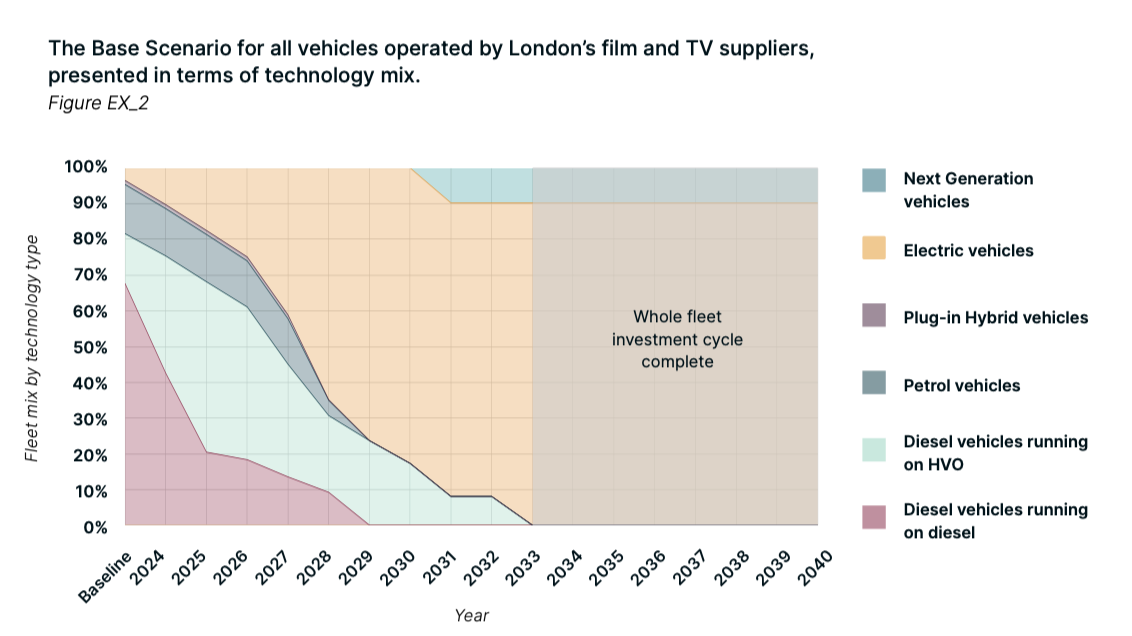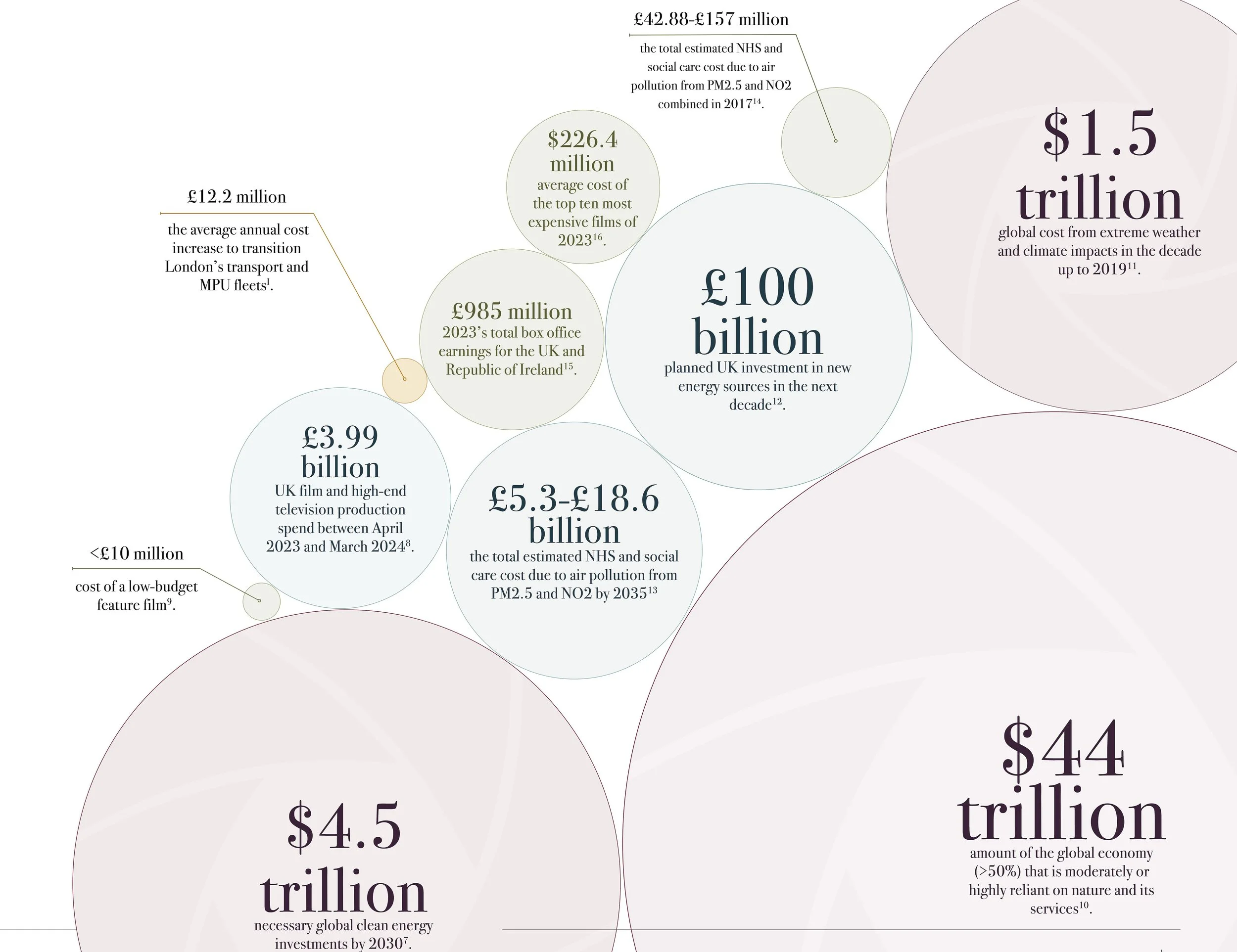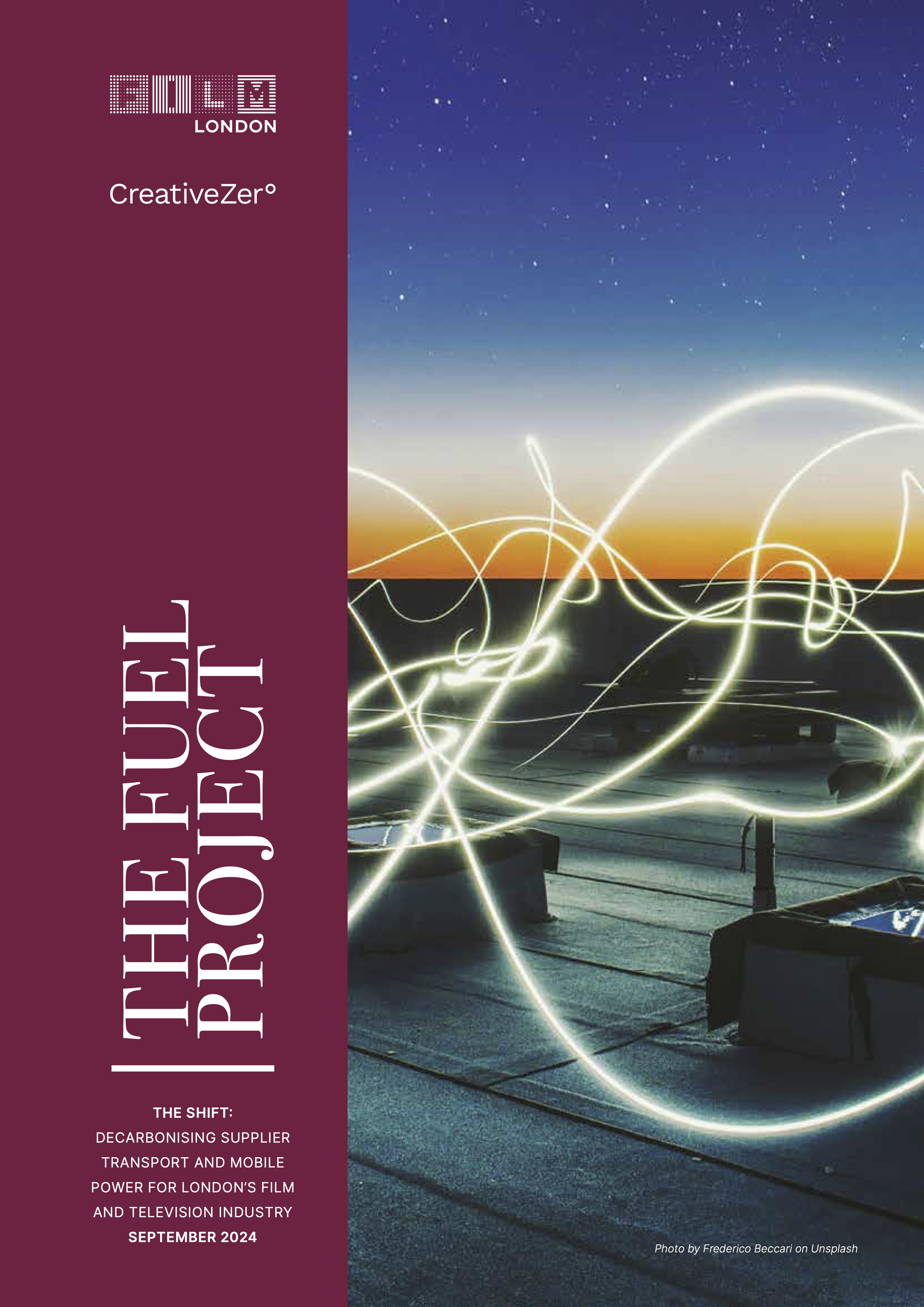
The Fuel Project
PHASE II: the SHIFT project, 2024
By 2033, London’s film and TV suppliers could reduce transport carbon emissions by 93% and reduce generator emissions by 91% by 2036.
Real world data from 190 generators on productions, shows they are significantly over-specced (i.e. the generator has a much greater potential energy output than needed for its actual use), with the vast majority (83%) never reaching 50% of power capacity. This leads to additional fuel consumption, emissions and costs.
Portable batteries available today have sufficient power output to cover 99% of production use cases.
Our latest report, The Shift, explains the current landscape of Film & TV supplier vehicles and mobile power unit fleets, the carbon footprint they create, and sets the timeline for achieving net zero.
SOME KEY FINDINGS:
THE LARGEST film & TV supplier decarbonisation RESEARCH PROJECT TO DATE sets a DECARBONISATION scenario for transport and MOBILE POWER fleets.
For the price of one INDEPENDENT film a year
(£12.2 million)
London’s Film & TV fleet
could transition away
from combustion fuels
by 2033.
Creative Zero can support you to:
Develop a fleet strategy, building a tailored replacement strategy for each vehicle;
Plan for infrastructure such as on-site recharging;
Identify the low-hanging fruit, such making the most of low carbon switches for your smaller vehicles that are already available;
Identify and engage in relevant low carbon vehicle trials and available grants.
The Shift represents Phase Two of The Fuel Project and is the first report of its kind to set out a clear decarbonisation pathway for transport and power in the film and TV industry. The Fuel Project has brought together film agencies, sustainability consultants, academia, suppliers, producers, broadcasters, streamers, major studios and more, to develop these decarbonisation scenarios and timelines for the industry.
This study delivers on three key goals:
Reports the most reliable carbon footprint to date for all of London’s film & TV road transport and mobile power.
Includes just transition principles within decarbonisation scenarios for London based suppliers, including equitable deadlines for fossil fuel phase out.
Assesses the financial cost to the industry of the transition.
The Fuel Project has been co-authored by Creative Zero founder Roxy Erickson, Alex Lewis-Jones, Creative Zero’s transport & power specialist and Laurence Johnson at Film London.
Read more about the Study and its contributors HERE.
The Fuel Project is a model for industry collaboration on shared material emissions. We would like to support other industries and regions to use this model to decarbonise their shared supply chain collectively in line with a just transition.
Phase Three is now in discussion, please get in touch if you’d like to be involved.
PHASE I: the SUPPLIER GUIDANCE REPORT, 2022
The Fuel Project’s first publication, the Supplier Guidance Report was written to provide film & television suppliers with the accurate knowledge to make planet-saving choices when it comes to vehicles and mobile power units. It provides a deep and nuanced understanding of the role HVO, electrification and hydrogen can play in London’s film & television industry.
This report marked a change in the industry, by looking directly at supply chain, skipping the industry ‘middle man’ of production-based carbon accounting. It was the first phase of collaborating with key stakeholders to support rapid industry supply chain decarbonisation.
The Fuel Project - Supplier Guidance Report is a Film London and Creative Zero collaboration with funding from GreenScreen Interreg.
transport services
Alexander Lewis-Jones has a wealth of experience embedding sustainability into the major players of the transport and energy sectors. He has led strategic research on the adoption of climate solutions, largely with a focus on electric vehicles.
Alex can offer consultation for these hard-to-decarbonise sectors including:
Sustainable transport workshops and training
Electric vehicle and charging infrastructure guidance
Fleet transition strategy
Vehicle trial programmes
Carbon calculation and communication support









